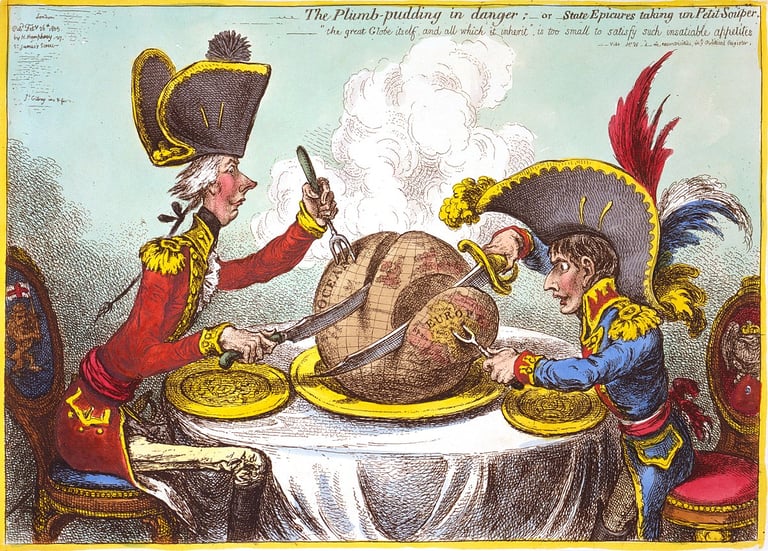Entertainment or Enlightenment?
While entertainment can be used to fool or manipulate, critical satire does the exact opposite! It allows the deeper meaning to reach individuals through pure entertainment, a weak spot for most people. This approach reaches people more, encouraging critical thinking and prompting audiences to question the norms. This simplifies serious issues, making them relatable and accessible. It fosters open dialogue and empowers individuals to engage with topics they might usually avoid. After all, politics impact everyone, and no one should be excluded from the debate.
From History
Throughout history, satire has proven to be a powerful tool for social critique. For example, Jonathan Swift’s essay “A Modest Proposal” was a satirical essay written in 1729. It was a critique of British economic exploitation, social injustice, and imposed policies on Ireland that, at the time, was under British rule. Because of the poverty and food shortage, the essay proposed that poor families should sell their infants as a source of income to face the situation. Swift, throughout his essay, proceeds to provide logical arguments and discuss the economic benefits of his proposal in a rational tone. This extreme proposal is an invitation for the public to reflect on the inequalities and injustices of the situation and question the morality of the socio-economic conditions caused by Britain.


Humor isn’t just for laughs, it’s a tool that can change how people see and act in the world. It can change people’s voting choices as well as make them more/less comfortable with taxes, recycling, or freedom of speech. Satire plays a role so crucial that it can get censored! It provides a powerful means to critique authority by masking political commentary in Humor. Traditional politics may rely on arguments and fallacies, but satire cuts through the noise and engages the audience with wit, making the critique memorable. This combination of Humor and critique can succeed in highlighting absurdities in political systems and leaders. It offers a clearer understanding of what’s really happening beneath the surface as well as influences public opinion and policy decisions.
Contemporary Satire:
In the Moroccan context, a good example is Mohammed Bassou’s ‘Si Elkala’ series. Bassou uses satire to highlight the Moroccan social injustices and the use of influence to gain unfair advantages at the expense of others. In the series, Bassou portrays a person in power at his office reaching out, through the phone, to various influential figures like himself to request unfair advantages for his contacts. This courageous move sheds light on the abuse of power by Morocco’s elite, exposing systemic favoritism and corruption.
Censorship of Humor: Silenced laughter
Some authorities understand and recognize the power of Humor, satire, and sarcasm, which is why some countries impose restrictions on Humor in general and provide empty alternatives. Through this, they control the discourse and ensure that the messages held by the Humor industry align with their interests. The TV shows, radio programs, and many other media controlled and processed by the authoritarian regimes seem to hinder critical Humor and offer superficial and trivial content that, according to some popular opinions about the topic, aims to ‘distract’ the public from the serious issues going on in the country. Drawing attention and including the general public in these discussions might result in realizing the troubling realities at play, which would result in awareness and potential demand for change, one that benefits the people.
The double-edged sword:
Even though satire can be a powerful tool for social critique, it isn’t immune to misuse. Humor can also reinforce harmful stereotypes, spread misinformation, or even manipulate public perception, especially when the joke is creatively funny and repetitive. In some sensitive cases, it can turn complex issues and important news into oversimplified events that people can just laugh off. Rather than fostering open dialogue, poorly aimed satire can alienate and polarize, undermining its intent to provoke thought and inspire change. As with any powerful tool, humor's impact depends on how thoughtfully it is used, and it’s our responsibility to think critically, even about a joke.
Our role
While political censorship seeks to stifle critical voices, satire resides against injustices. By appreciating the political satire and rejecting the empty content advocating for more stagnation of criticism, we have the power to challenge the status quo. It’s time to pick up our pens, cameras, platforms, or any tools we have including our critical thinking alone, and use humor to highlight issues and open the silenced debates. After all, laughing can speak louder than shouting.


